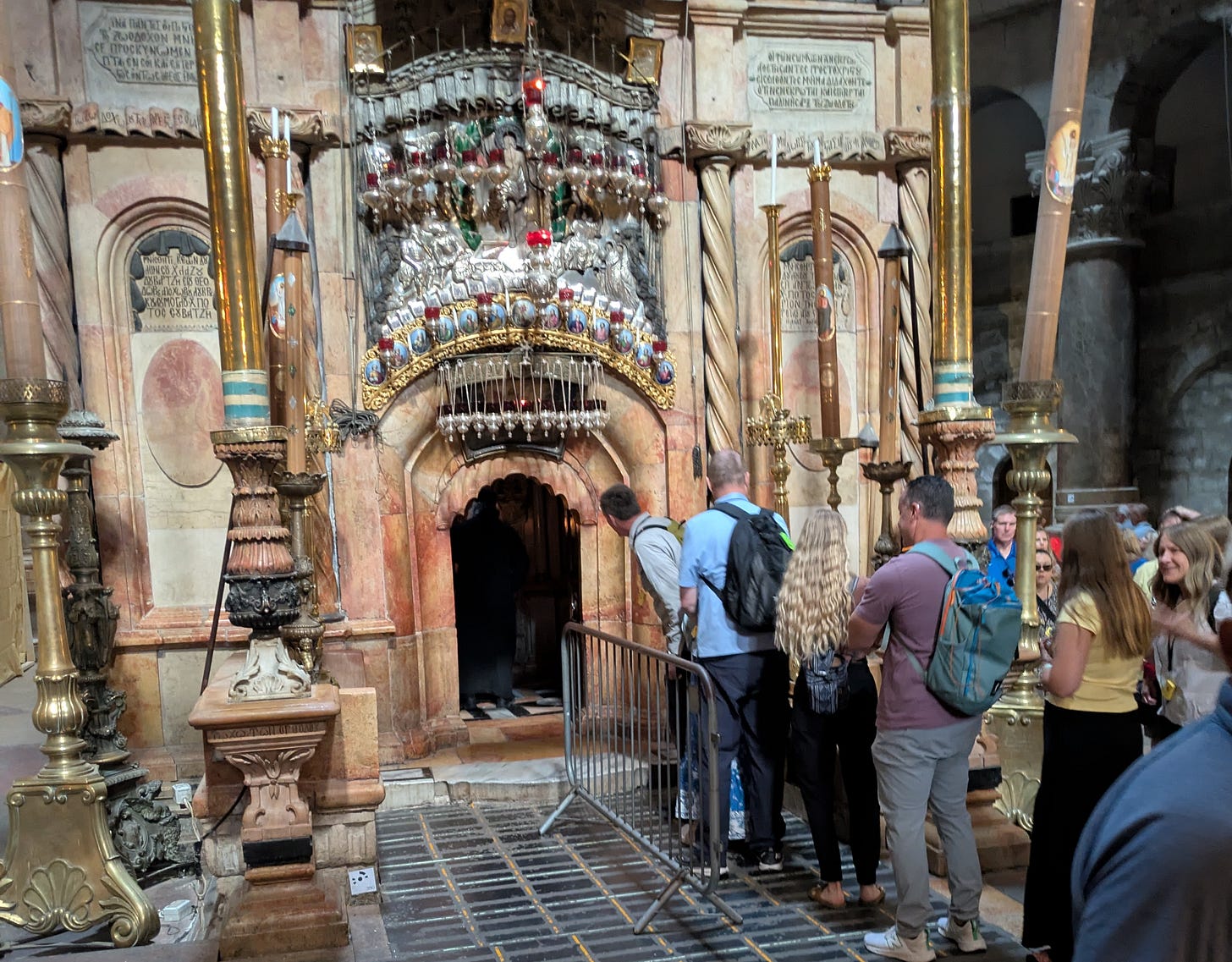Tour of sites connected to life of Jesus strengthens intent to follow his teachings
Backdrop of war can't help but influence perspective on visit to Holy Land

Faithful Muslims have an obligation to make a pilgrimage to Mecca at least once during their lifetime if they are physically and financially able. Christians have no similar obligation…


